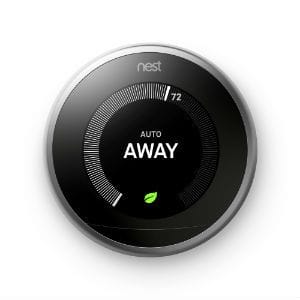Does a Smart Thermostat Save Money?
The amount an individual household saves can vary quite a bit depending on your existing situation and thermostat habits.
How Does A Smart Thermostat Save You Money?
A smart thermostat isn’t some mystical device that changes the laws of physics in order to use less energy. The only way to spend less is to heat or cool less. It will save you money by setting temperatures higher during cooling and lower during heating. That’s it. Pretty simple, right?

The smart part is deciding when to do it so you don’t notice. It’s always on watching when you leave and when you come home. It sees you when you’re sleeping, it knows when you’re awake, etc. And, the best part is it doesn’t forget and it doesn’t get lazy.
A typical home in the US can reduce heating and cooling costs as much as 10% by turning the thermostat back 7°-10°F for 8 hours/day from the usual set point. Although this simple setting can be done with just about any thermostat, it turns out that many people don’t do it.
A recent study found that almost 50% of households that own programmable thermostats don’t set them up properly. It might be because they forget, they don’t know how, or they just don’t want to be hassled with it. Regardless of the reason, a smart thermostat never forgets, always knows how to adjust your temperature, and always cares because that is exactly its purpose and that is how it saves you money.
Are you a set it and forget thermostat operator or do you micro-manage your thermostat?
The households that will save the most money are the ones that either
- have a programmable thermostat that they don’t utilize or
- have a manual thermostat that tends to stay set to a single temperature 24/7.
If you are already the thermostat micro-manager, then you will probably not experience much savings with a shiny new smart thermostat. However, that doesn’t mean a smart thermostat is completely useless to you. There are other benefits that may prove it to still be a worthwhile investment.
Looking for more information? Visit thesmartcave.com for other great articles.
